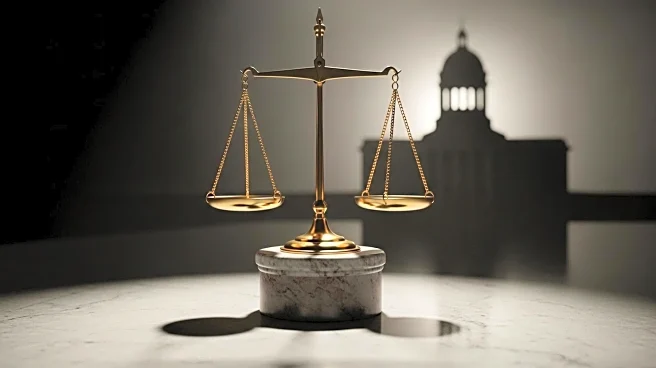What's Happening?
Retired Supreme Court Justice Anthony Kennedy has authored a book titled 'Life, Law, & Liberty,' set for release on October 14, where he shares insights from his 30-year tenure on the Supreme Court. Known as a 'swing justice,' Kennedy's votes were pivotal in landmark cases involving same-sex marriage, campaign finance, affirmative action, and abortion. He discusses his ideological journey, initially as a conservative, and his eventual alignment with more liberal decisions, particularly on same-sex marriage and abortion rights. Kennedy expresses concern over the current state of American discourse, noting a shift towards antagonistic and confrontational communication, and worries about the increasing partisanship within Supreme Court opinions.
Why It's Important?
Kennedy's reflections are significant as they provide a rare glimpse into the decision-making processes of a Supreme Court justice who played a crucial role in shaping modern American jurisprudence. His views on liberty and the Constitution challenge the prevailing originalist doctrine embraced by the current conservative majority on the Court. Kennedy's emphasis on evolving interpretations of liberty highlights the ongoing debate over constitutional interpretation and its impact on civil rights. His concerns about the tone of political discourse and partisanship within the Court underscore broader societal issues affecting governance and democracy in the United States.
What's Next?
Kennedy's book may influence public and scholarly discussions on constitutional interpretation and the role of the Supreme Court in contemporary society. As the Court continues to address contentious issues, Kennedy's insights could serve as a reference point for debates on judicial philosophy and the balance between personal beliefs and legal obligations. The release of his book may also prompt further examination of the Court's dynamics and the implications of its decisions on American society.
Beyond the Headlines
Kennedy's narrative offers a personal perspective on the ethical and emotional challenges faced by justices, particularly in cases involving moral dilemmas like abortion. His account of reconciling personal beliefs with legal duties provides a nuanced understanding of the complexities inherent in judicial decision-making. The book also touches on the cultural and historical influences that shaped Kennedy's views, offering a broader context for his legal philosophy.











